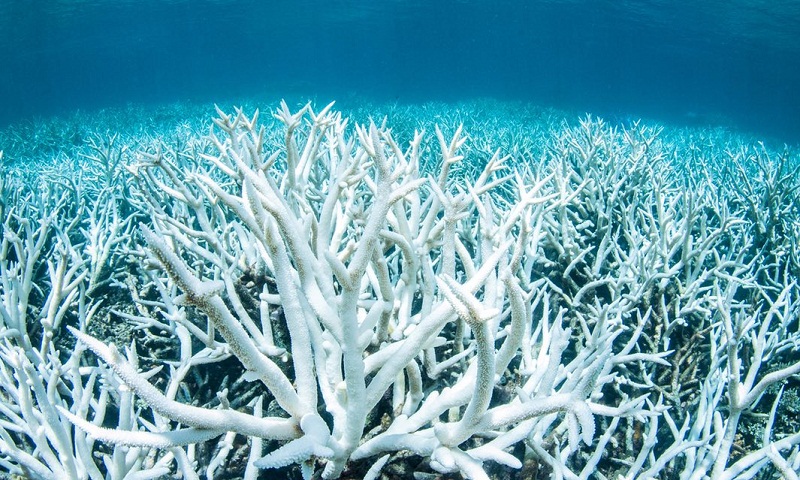We must act immediately to save the Great Barrier Reef

And so it begins: the end of days. The Great Barrier Reef is bleaching for the second year in a row and now, according to the results of helicopter surveys released on Monday, it is the middle part (all 300 miles-plus of it) that is suffering the awful reef stress that comes courtesy of a warming ocean. Coral bleaching is incredibly serious. In especially warm summers, the complex balance between the symbiotic algae and the coral becomes disrupted. To save themselves, the coral expels the algae in the hope of better times ahead. In this state, the coral becomes whitened. That’s what bleaching is. Without the algae to synthesise most of its energy, the coral operates on a kind of “standby” mode. It is vulnerable in this state. Only one third of the entire Great Barrier Reef remains unbleached. The bell, it seems, is tolling for one of the most biologically active parts of planet Earth. I watched this Great Barrier Reef story unfold, and what started out as quite a conservative bit of science reporting quickly morphed into something else. By midday, many news outlets started running with the line that the Great Barrier Reef was now in a “terminal stage” – a phrase used by one (understandably frustrated) expert in the Guardian’s coverage of the story and recycled into all sorts of other online reports, which then did loops on Twitter. “Oh Christ,” I thought, “James Delingpole is going to love this.” Skip forward a few hours and the columnist did his thing on Breitbart – don’t go looking for it, but let’s just say I was proved right. For a bleached reef is not a dead reef as you no doubt know – and the climate-change deniers have enjoyed the chance to throw around more allegations of “scaremongering” and their accusations that “Greenies don’t do science” – which is, of course, ridiculous. Such backlash from climate-change deniers like Delingpole is inevitable. But in this case, I think the conservation hand really was overplayed. Is the Great Barrier Reef really in terminal decline? Is it really done and dusted? I don’t think so. Because coral bleaching, though incredibly serious and concerning, quite simply is not death. (Indeed the scientists involved in the study themselves said: “Bleached corals are not necessarily dead corals …”). Coral reefs can recover. There is reason for hope, therefore. Hope, but not complacency.
Read More: http://www.theguardian.com/commentisfree/2017/apr/12/great-barrier-reef-dead-coral-bleaching-recover

